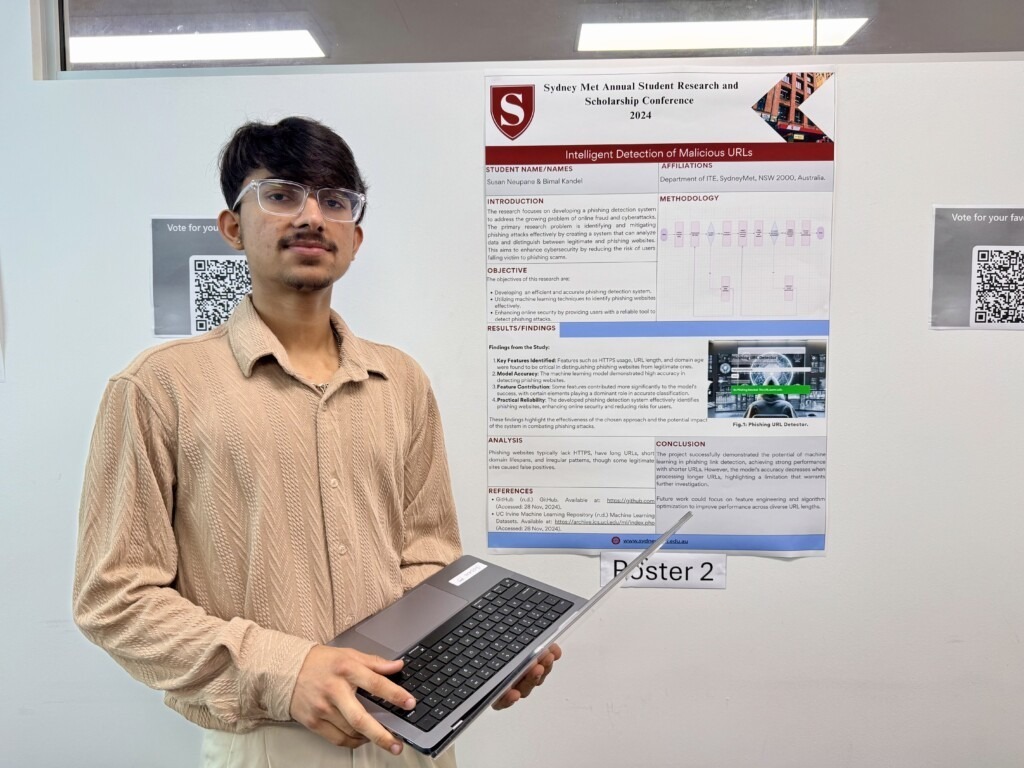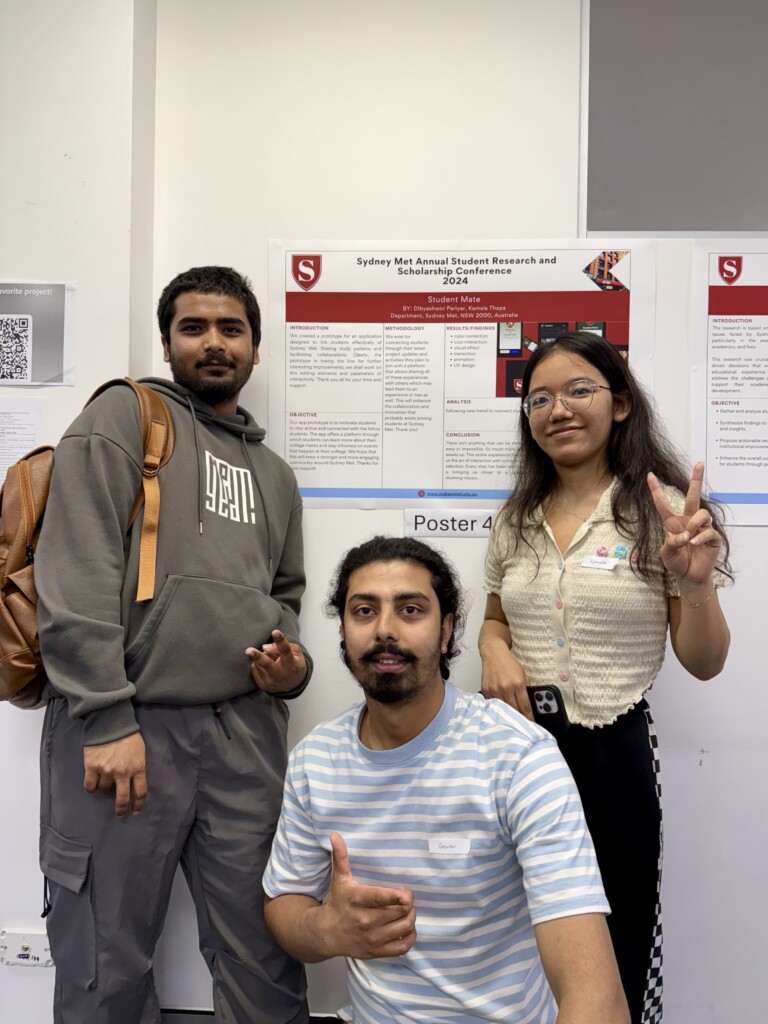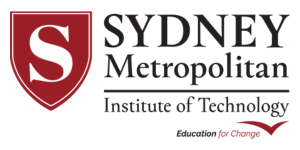linking research with practice
Sydney Met is a registered Australian Institute of Higher Education that delivers and awards higher education courses. We are committed to educational excellence and research informs this commitment. By providing a learning environment informed by research and scholarship consistent with the Higher Education Standards Framework (HESF) 2021 we ensure that academic staff have current knowledge of their discipline, and that teaching and learning practices are aligned with current, evidence-based, best practice, to build a quality student experience and prepare graduates for the workplaces they will enter.
Staff scholarly activity at Sydney Met is supported by a range of institution-wide practices associated with: academic staff recruitment; workload allocation and annual workload planning; resource allocation; and reporting.



Sydney Met encourages its staff and students to undertake research and scholarly activities that enhances student learning outcomes and satisfaction. The Research Policy Framework specifies the requirements that all Sydney Met people must comply with policies, procedures and guidelines relevant to research at Sydney Met in order to ensure effective and consistent research activity. It draws on the Research and Scholarship Plan, Research Code of Practice, and considerations of best practice in the Australian higher education sector.
Research at Sydney Met is conducted according to the standards and requirements of the Australian Code for the Responsible Conduct of Research and the National Statement on Ethical Conduct in Human Research. In these documents research is defined as follows:
“The concept of research is broad and includes the creation of new knowledge and/or the use of existing knowledge in a new and creative way so as to generate new concepts, methodologies, inventions and understandings. This could include synthesis and analysis of previous research to the extent that it is new and creative.”
‘Research’ includes work of direct relevance to the needs of commerce, industry, and to the public and voluntary sectors; scholarship; the invention and generation of ideas, images, performances, artefacts including design, where these lead to new or substantially improved insights; and the use of existing knowledge in experimental development to produce new or substantially improved materials, devices, products and processes, including design and construction. It excludes routine testing and routine analysis of materials, components and processes such as for the maintenance of national standards, as distinct from the development of new analytical techniques. It also excludes the development of teaching materials that do not embody original research.
Both the Australian Code and National Statement espouse ethical research. The Australian Code proposes that research should be conducted responsibly and with integrity. It outlines principles and behaviours consistent with the honest, conscientious, and authentic conduct of research. The National Statement articulates key ethical principles of research:
‘The relationship between researchers and research participants is the ground on which human research is conducted. The values set out in this section – respect for human beings, research merit and integrity, justice, and beneficence – help to shape that relationship as one of trust, mutual responsibility and ethical equality.’ In its treatment of beneficence the National Statement includes benefit to participants and to the broader community: ‘The purpose of [the] National Statement is to promote ethically good human research. Fulfilment of this purpose requires that participants be accorded the respect and protection that is due to them. It also involves the fostering of research that is of benefit to the community.’
This policy framework recognises research as important, especially for the improvement of teaching, scholarship and learning. It promotes a culture of continuous improvement and excellence through research, research-informed teaching and innovation to help deliver a high quality and transformative teaching and learning environment. The purpose of this policy framework is to ensure that research is compliance with the teaching focus of Sydney Met and relevant legislation, policies, standards, codes of conduct and best practice guidelines. It provides clarity about the expectation for Sydney Met staff to collaborate and undertake research and encourage its integration into teaching. This framework acknowledges that Sydney Met accepts and adopts the principles and practices outlined in the Australian Code for the Responsible Conduct of Research (2007).
Research at Sydney Met is conducted ethically, according to standards of responsibility, integrity, respect, justice, and beneficence. Sydney Met researchers recognise the relationship between researchers and research participants as the basis on which human research is conducted. Their research reflects the 4 values in the National Statement: respect for human beings, research merit and integrity, justice, and beneficence. They hold that human research requires critical reflection that is informed by these 4 values, and that the design, review and conduct of research must reflect each of these values.
The Executive Dean is responsible for the overall management, strategic direction and stewardship of the research activities of Sydney Met. The Executive Dean will use this policy framework to ensure a consistent approach to a range of research and scholarship matters undertaken by Sydney Met staff and students.


Sydney Met's campus is located on the unceded territory of the Gadigal people of the Eora Nation, who are the traditional owners of the land where the campus is situated. We pay our respects to their Elders, past, present, and emerging. We extend that respect to Aboriginal and Torres Strait Islander peoples in Australia and Indigenous peoples globally who are presently studying, working, or contributing to Sydney Met.
© Sydney Met 2024 All Rights Reserved.

